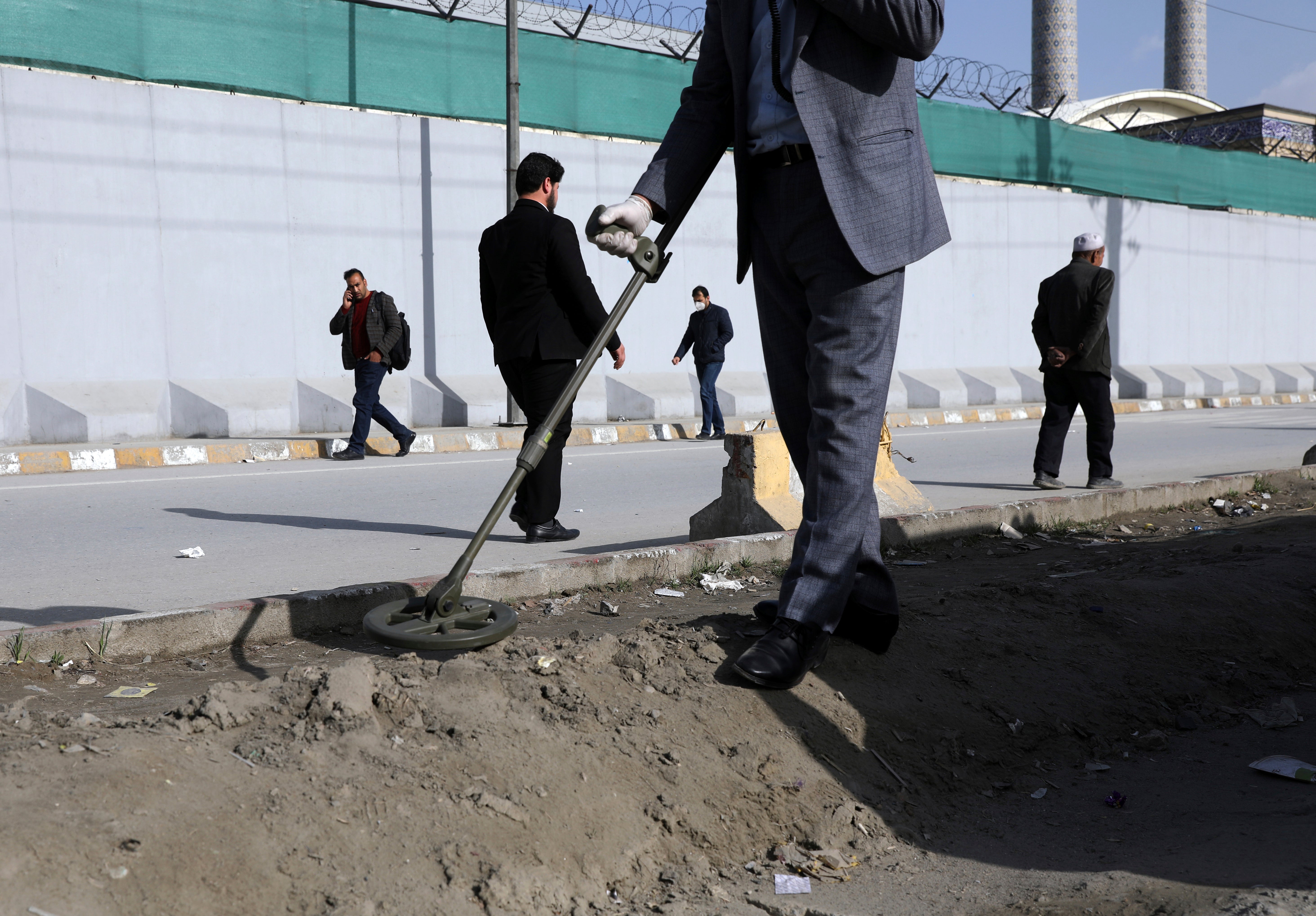UN chief warns that use of IEDs is increasing globally
U.N. Secretary-General Antonio Guterres is warning that the use of improvised explosive devices is increasing as conflicts become more urbanized and armed groups proliferate

Your support helps us to tell the story
From reproductive rights to climate change to Big Tech, The Independent is on the ground when the story is developing. Whether it's investigating the financials of Elon Musk's pro-Trump PAC or producing our latest documentary, 'The A Word', which shines a light on the American women fighting for reproductive rights, we know how important it is to parse out the facts from the messaging.
At such a critical moment in US history, we need reporters on the ground. Your donation allows us to keep sending journalists to speak to both sides of the story.
The Independent is trusted by Americans across the entire political spectrum. And unlike many other quality news outlets, we choose not to lock Americans out of our reporting and analysis with paywalls. We believe quality journalism should be available to everyone, paid for by those who can afford it.
Your support makes all the difference.Secretary-General Antonio Guterres warned Thursday that the use of improvised explosive devices is increasing as conflicts become more urbanized and armed groups proliferate, and he urged nations to work together to curb the threat from those weapons as well as land mines and other remnants of war.
The U.N. chief told the Security Council that in the preceding three years U.N. funding made more than 560 square kilometers (215 square miles) safe from IEDs in global hotspots from Afghanistan and Iraq to Cambodia and Colombia. That’s an area equivalent to 10 times the size of Manhattan that can now be used for buildings, farming, markets, schools and roads, he said.
But he added that despite progress by the U.N. and other organizations, “challenges have intensified,” including from the COVID-19 pandemic limiting access for mine clearing operations.
Guterres said IEDs represent the greatest threat to African Union peacekeepers in both Somalia and Mali. He said mines and other explosive remnants of war hinder the mobility of U.N. peacekeepers in South Sudan and “new explosive threats” are emerging in Central African Republic and Congo.,
The secretary-general said 164 countries are parties to the 1997 international treaty against land mines, which prohibits their use, stockpiling, production and transfers and requires their elimination.
He called for the 33 U.N. member states that haven’t ratified it “to do so without delay.” Among the countries that have not ratified are the United States, Russia, China, North Korea, South Korea, Myanmar, Egypt, India, Pakistan, Saudi Arabia and Vietnam
Vietnam holds the Security Council presidency and organized Thursday's virtual meeting, which was presided over by its newly named foreign minister, Bui Thanh Son.
“Every year, land mines, explosive remnants of war and improvised explosive devices claim nearly 10,000 casualties, mostly civilian, and children in conflict areas such as Afghanistan, Libya and Yemen, but also alarmingly in places like Cambodia, Laos and my own country, Vietnam, where wars ended decades ago,” Bui said. “It is a reminder of the long-lasting, destabilizing effects to post conflict peace-building and sustainable peace.”
Bui said that “almost one-fifth of Vietnam’s land areas are still contaminated by unexploded ordnances,” and if clearance efforts continue at the current rate and with current resources it “will take another hundred years to complete.”
Vikas Swarup, India's vice minister for foreign affairs, expressed deep concern that terrorist groups, including the Islamic State movement, “have resorted to land mines and IEDs as low cost and effective options to spread terror and threaten innocent civilians.”
“We need to strongly condemn and take effective measures to combat this trend,” Swarup said.
U.S. Ambassador Linda Thomas-Greenfield noted that the Landmine Monitor’s 2020 report said 5,554 people, most of them “innocent civilians,” were killed or injured globally in 2019 by land mines, cluster munitions and other explosive remnants of war.
Thomas-Greenfield said U.S. President Joe Biden “believes we need to curtail the use of land mines” and has been clear that he intends to roll back the Trump administration’s policy.
The Pentagon said this week it will keep in place a Trump-era policy allowing the use of certain anti-personnel land mines that were restricted under former President Barack Obama while it conducts a review.
The Security Council adopted a presidential statement calling for enhanced international action against mines, war remnants and IEDs, particularly in conflict areas.
Council members called on all parties in armed conflicts “to end immediately and definitively any indiscriminate use of explosive devices in violation of international humanitarian law.”